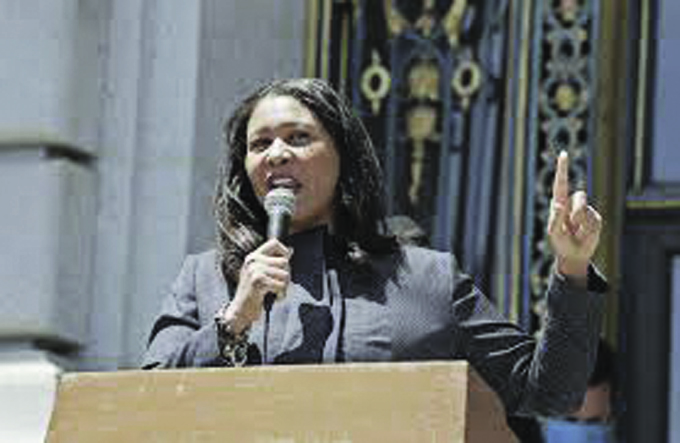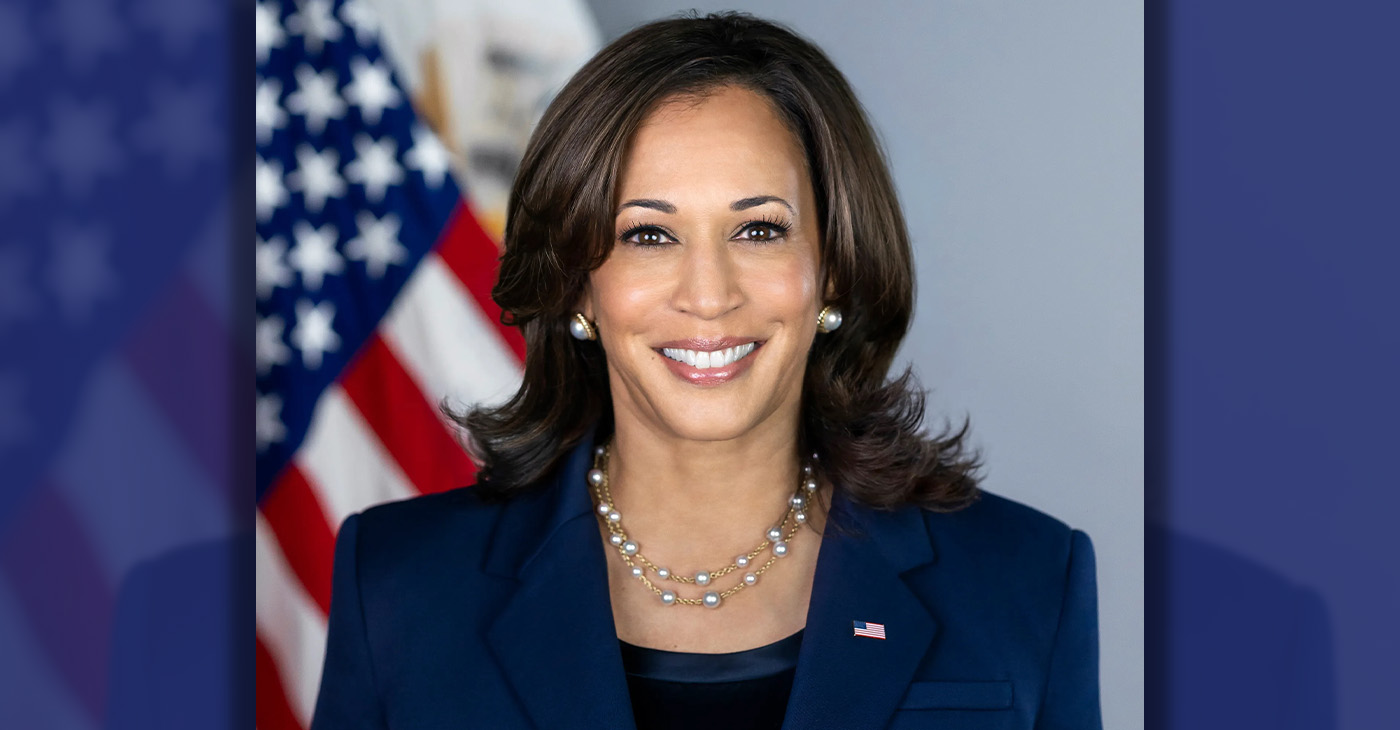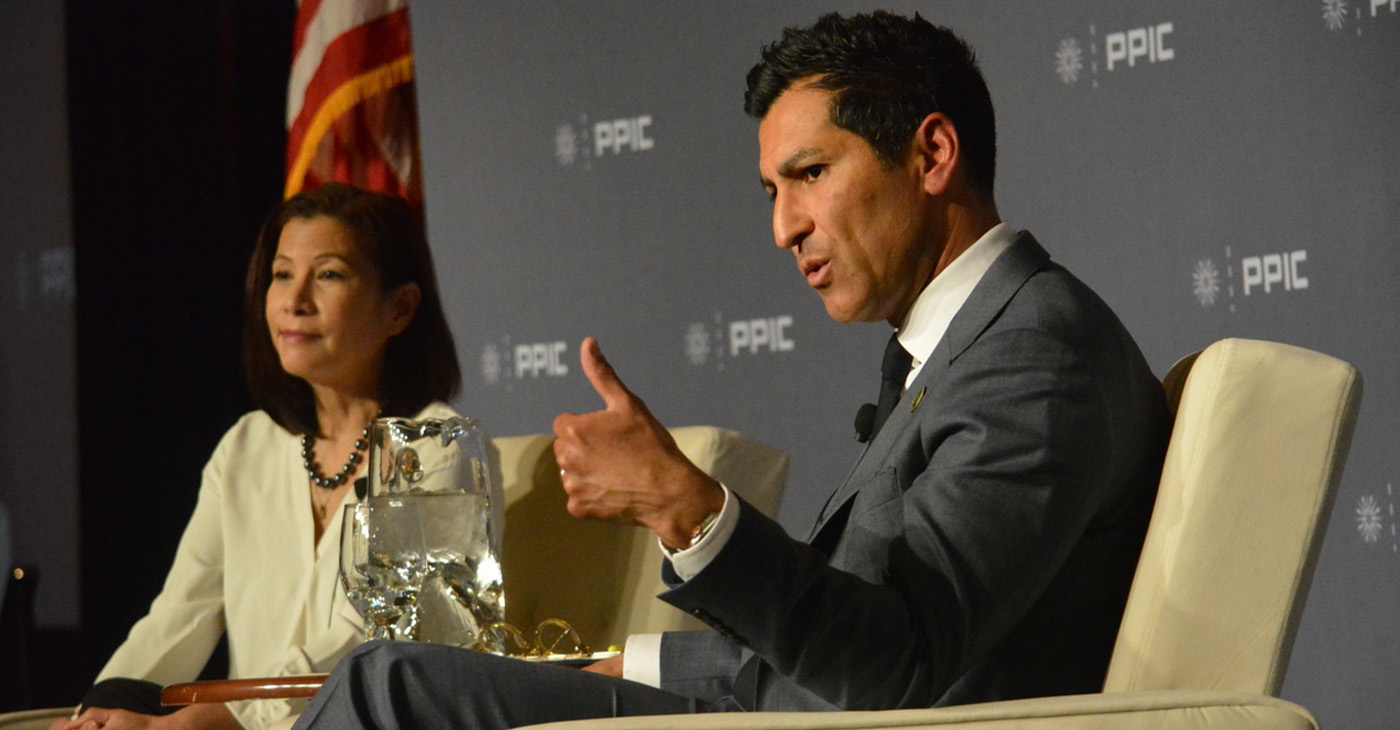Community
Mayor London Breed Expands CityBuild to Support San Francisco’s Local Workforce and Economic Recovery
Mayor London N. Breed and the Office of Economic and Workforce Development (OEWD) announced the expansion of CityBuild, a nationally recognized construction training program that provides career pathways for historically underserved San Francisco residents into the building and construction trades, to now serve 600 local residents over the next two years.

Mayor London N. Breed and the Office of Economic and Workforce Development (OEWD) announced the expansion of CityBuild, a nationally recognized construction training program that provides career pathways for historically underserved San Francisco residents into the building and construction trades, to now serve 600 local residents over the next two years.
The expansion, which doubles the number of participants, will provide more opportunities for workers to learn in-demand skills, receive wraparound services and job placement assistance in the City’s growing construction industry.
“As we look to our economic recovery and focus on getting people back to work, it is critical that we invest in providing our local workforce with the skills necessary to succeed. That is why we are doubling the number of CityBuild participants and creating more well-paying jobs for local San Franciscans,” Breed said on September 1. “Training our city’s workforce and placing them in meaningful careers will support those that were most impacted by the pandemic and help drive equitable employment opportunities for our city’s residents.”
The expansion will double CityBuild’s capacity to train 600 participants through CityBuild Academy, Special Trainings, and CityBuild-Building Trade Partnerships, including funding through Mayor Breed’s Women & Families First Initiative.
The construction industry anticipates significant growth due to the local hiring requirement that is part of President Joe Biden’s infrastructure package. In August, the U.S. Senate approved Biden’s $1.2 trillion proposal to invest in the nation’s roads, bridges, public transit, broadband, and essential infrastructure, creating hundreds of thousands of jobs nationwide, including goals for local community hiring.
“Local Hire has led to more job opportunities for historically underserved communities. The expansion of CityBuild capitalizes on those opportunities to ensure that local residents have access to livable wages and long-lasting careers in a growing industry,” said Kate Sofis, director of the Office of Economic and Workforce Development. “CityBuild is vital to San Francisco’s equitable economic recovery—serving as an example of how we can meet the moment, strengthen our local workforce, and get San Franciscans back to work”
San Francisco’s Local Hire Ordinance requires 30% of all project hours on City-funded construction to be performed by local residents. CityBuild assists in providing a pipeline of qualified workers to meet the requirements of the Ordinance and the demands of the industry.
In the years since the Local Hire Ordinance’s adoption, local residents have performed 33% of a total of 8.2 million work hours on covered projects, with 48% of apprentice hours worked by local apprentices.
Biden’s infrastructure deal builds on the success of local hiring policies to create economic opportunity for disadvantaged residents by implementing a resident hiring requirement in federal infrastructure construction projects for the first time, creating a significant demand for San Francisco residents in the construction industry.
Congress will resume consideration of the proposal upon returning from recess on September 20.
CityBuild was the Office of Economic and Workforce Development’s first training program, providing the foundation for future workforce initiatives in healthcare, tech, hospitality, and emerging industries,” said Joshua Arce, director of Workforce at the Office of Economic and Workforce Development. “CityBuild’s many years of success in providing underserved communities access to opportunities to raise a family, buy a home, and have a successful career is intertwined with our partnership with the Building Trades, who offer graduates the chance to become a Union apprentice and turn out as journey-level construction workers, perhaps eventually becoming superintendents or apprenticeship coordinators.
“This unique collaboration between labor, contractor, educational, and community-based organizations has made CityBuild a national model to advance equity,” Arce said.
CityBuild began in 2006, under then-Mayor Gavin Newsom, as an effort to coordinate citywide construction training and employment programs and is administered by OEWD in partnership with City College of San Francisco and the San Francisco Building & Construction Trades Council, community non-profit organizations including Mission Hiring Hall, industry employers, and City agencies.
CityBuild trainees represent neighborhoods from across the City, including Bayview Hunters Point, Visitacion Valley, the Mission, the Excelsior, Ingleside, Bernal Heights, and the Western Addition.
“Today we celebrate 15 years of CityBuild providing opportunities for SF residents right here in the Southeast Sector of San Francisco. I want to acknowledge all of the individuals who have completed the program and gone on to become leaders in the field of construction. The partnerships that have developed through this training program have made it possible to employ hundreds of community members,” said San Francisco Board of Supervisors President Shamann Walton, who represents District 10. “I want to thank San Francisco City College, OEWD, and all of the community-based organizations that make the connections for our residents. Looking forward to many more years of making opportunities real!”
Over the past 15 years, CityBuild’s Training Academy has graduated 1,350 participants, including 146 through partnerships with projects such as the Chase Center, Gleneagles, and Alice Griffith. Graduates of the program represent the diversity of San Francisco’s disadvantaged job seekers with 30% Black, 19% Latino, and 36% Asian- Pacific Islander. In an industry that is nationally comprised of less than 1% women, CityBuild graduates are comprised of 12% women.
“At the core of CityBuild’s success are our partnerships,” said CityBuild Director Ken Nim. “Thanks to the support from labor organizations, construction contractor community, inter-agency and government collaboration, and community-based organizations providing services on the ground, we developed a strong foundation to deliver a program for all San Franciscans to prosper. These four pillars continue to be the strength of helping the City recover and build stronger.”
“The San Francisco Building and Construction Trades Council and all our affiliates are proud of our partnership with CityBuild since its inception. Thanks to CityBuild’s services to the community, the program had prepared San Francisco residents with core skills to be successful in the industry,” said Rudy Gonzales, the secretary-treasurer of the San Francisco Building & Construction Trades Council. “Graduates of the program are more equipped for the rigors of construction and become strong apprentices. Our employers and apprenticeship coordinators all believe that the pathway CityBuild has provided for graduates is the model for what a pre-apprenticeship program has to offer.”
CityBuild has evolved into a network of training programs, employment services, and policy administration. With its dual-service approach to training and job placement, CityBuild has taken advantage of the growing pipeline of workers to become a valuable resource for contractors and employers while continuing to monitor local hiring compliance on all major construction projects within the City. For more information, please visit www.oewd.org/citybuild.
“Wraparound services are critical to the successful outcomes of a workforce training participant. These services will help us identify and address the personal and social needs of participants that may impact their transition to gainful employment,” said Michelle Leonard-Bell, executive director of Mission Hiring Hall and CityBuild program coordinator. “The human touch of empathy and compassion demonstrates our commitment to focus on each person’s unique circumstances. These coordinated services will lead to greater success as participants begin careers in the construction industry.”
“Swinerton is proud to be a partner of CityBuild since its inception 15 years ago. The quality of graduates and the success of the apprentices coming out of the program has helped our company retain great employees,” said Lori Dunn-Guion, Vice President – Division Manager, Swinerton. “Part of the mission of our company is to ensure that we have a long and lasting impact on the communities in which we live, serve, and belong. We recognize jobs and career opportunities promote sustainable economies. Our partnership with CityBuild has helped us achieve that goal.”
The San Francisco Mayor’s Office of Communications provided this report.
Art
Marin County: A Snapshot of California’s Black History Is on Display
The Marin County Office of Education, located at 1111 Las Gallinas Ave in San Rafael, will host the extraordinary exhibit, “The Legacy of Marin City: A California Black History Story (1942-1960),” from Feb. 1 to May 31, 2024. The interactive, historical, and immersive exhibit featuring memorabilia from Black shipyard workers who migrated from the South to the West Coast to work at the Marinship shipyard will provide an enriching experience for students and school staff. Community organizations will also be invited to tour the exhibit.

By Post Staff
The Marin County Office of Education, located at 1111 Las Gallinas Ave in San Rafael, will host the extraordinary exhibit, “The Legacy of Marin City: A California Black History Story (1942-1960),” from Feb. 1 to May 31, 2024.
The interactive, historical, and immersive exhibit featuring memorabilia from Black shipyard workers who migrated from the South to the West Coast to work at the Marinship shipyard will provide an enriching experience for students and school staff. Community organizations will also be invited to tour the exhibit.
All will have the opportunity to visit and be guided by its curator Felecia Gaston.
The exhibit will include photographs, articles and artifacts about the Black experience in Marin City from 1942 to 1960 from the Felecia Gaston Collection, the Anne T. Kent California Room Collection, The Ruth Marion and Pirkle Jones Collection, The Bancroft Library, and the Daniel Ruark Collection.
It also features contemporary original artwork by Chuck D of the Rock and Roll Hall of Fame group Public Enemy, clay sculptures by San Francisco-based artist Kaytea Petro, and art pieces made by Marin City youth in collaboration with Lynn Sondag, Associate Professor of Art at Dominican University of California.
The exhibit explores how Marin City residents endured housing inequities over the years and captures the history of plans to remove Black residents from the area after World War II. Throughout, it embodies the spirit of survival and endurance that emboldened the people who made Marin City home.
Felecia Gaston is the author of the commemorative book, ‘A Brand New Start…This is Home: The Story of World War II Marinship and the Legacy of Marin City.’ Thanks to the generous contribution of benefactors, a set of Felecia’s book will be placed in every public elementary, middle, and high school library in Marin.
In addition, educators and librarians at each school will have the opportunity to engage with Felecia in a review of best practices for utilizing the valuable primary sources within the book.
“Our goal is to provide students with the opportunity to learn from these significant and historical contributions to Marin County, California, and the United States,” said John Carroll, Marin County Superintendent of Schools.
“By engaging with Felecia’s book and then visiting the exhibit, students will be able to further connect their knowledge and gain a deeper understanding of this significant historical period,” Carroll continued.
Felecia Gaston adds, “The Marin County Office of Education’s decision to bring the Marin City Historical Traveling Exhibit and publication, ‘A Brand New Start…This is Home’ to young students is intentional and plays a substantial role in the educational world. It is imperative that our community knows the contributions of Marin City Black residents to Marin County. Our youth are best placed to lead this transformation.”
The Marin County Office of Education will host an Open House Reception of the exhibit’s debut on Feb. 1 from 4 p.m. – 6 p.m.. All school staff, educators, librarians, and community members are encouraged to attend to preview the exhibit and connect with Felecia Gaston. To contact Gaston, email MarinCityLegacy@marinschools.org
Business
V.P. Kamala Harris: Americans With Criminal Records Will Soon Be Eligible for SBA Loans
Speaking in Las Vegas on Jan. 27, Vice President Kamala Harris announced a forthcoming federal rule that will extend access to Small Business Administration (SBA) loans to Americans who have been convicted of felonies but have served their time. Small business owners typically apply for the SBA loans to start or sustain their businesses.

By California Black Media
Speaking in Las Vegas on Jan. 27, Vice President Kamala Harris announced a forthcoming federal rule that will extend access to Small Business Administration (SBA) loans to Americans who have been convicted of felonies but have served their time.
Small business owners typically apply for the SBA loans to start or sustain their businesses.
Harris thanked U.S. Rep. Steven Horsford (D-NV-04), the chair of the Congressional Black Caucus, for the work he has done in Washington to support small businesses and to invest in people.
“He and I spent some time this afternoon with business leaders and small business leaders here in Nevada. The work you have been doing to invest in community and to invest in the ambition and natural capacity of communities has been exceptional,” Harris said, speaking to a crowd of a few hundred people at the Brotherhood of Electrical Workers Hall in East Las Vegas.
On her daylong trip, Harris was joined by Horford, SBA Administrator Isabella Guzman, Interim Under Secretary of Commerce for Minority Business Development Agency (MBDA) Eric Morrissette, and Sen. Catherine Cortez Masto (D-Nev).
“Formerly incarcerated individuals face significant barriers to economic opportunity once they leave prison and return to the community, with an unemployment rate among the population of more than 27%,” the White House press release continued. “Today’s announcement builds on the Vice President’s work to increase access to capital. Research finds that entrepreneurship can reduce recidivism for unemployed formerly incarcerated individuals by as much as 30%.”
Community
The Year Ahead: Assembly Speaker Rivas Discusses Priorities, Problems
Assembly Speaker Robert Rivas shared his legislative priorities and vision for the future of California during a luncheon hosted by the Public Policy Institute of California (PPIC) in downtown Sacramento.

By Antonio Ray Harvey, California Black Media
Assembly Speaker Robert Rivas shared his legislative priorities and vision for the future of California during a luncheon hosted by the Public Policy Institute of California (PPIC) in downtown Sacramento.
Titled a “Conversation with Assembly Speaker Robert Rivas” for PPIC’s 2024 Speaker Series on California’s Future, the 44-year-old Democrat lawmaker from Hollister, who represents the 29th Assembly District, is the 71st speaker of the Assembly.
The discussion at the Sheraton Hotel took place about two weeks after Gov. Gavin Newsom presented his $291 Billion January budget proposal.
“These are going to be difficult times,” Rivas said of the task of balancing a budget that has been estimated separately by the Department of Finance and Legislative Analyst’s Office to have a deficit between $38 billion and $68 billion. “It’s going to underpin everything we get done this year. It’s going to impact everything.”
PPIC’s Speaker Series on California’s Future allows “leaders, lawmakers, and changemakers with diverse perspectives to participate critically, constructively, and collaboratively in public conversations,” according to PPIC.
PPIC president and Chief Executive Officer Tani Cantil-Sakauye was the moderator of the 60-minute discussion that about 200 guests attended.
Rivas said right after he was sworn in as the Assembly leader that among his top priorities are mental and medical wellness, public safety, affordable housing, homelessness, education, the state’s entry-level scientists’ wages, and climate change.
He added that his goal is to focus on both urban and rural areas across the state, including improving public services and infrastructure. He explained that wildfires, flooding, droughts, and agriculture productivity are additional concerns.
Rivas shared that legislators should have goals of “addressing critical issues” that lead to “progress, affordability, and improving day-to-day” quality of life for all residents in California.
“These issues are consistent across the state. I prioritize no region over the other,” Rivas told Cantil-Sakauye, the former chief justice of the California Supreme Court.
During the question-and-answer portion of the conversation, Michael L. Younger, the Vice President of Workforce, Strategy, and Innovation at Calbright College asked Rivas about how the state can help individuals with workforce training and achieve labor success without relying on traditional colleges and university.
“(I am) speaking to those who may not see themselves on the college track but also have value to society,” Younger asked Rivas.
In his response, Rivas said the labor force needs individuals with work training skills, especially with the rise and usage of artificial intelligence.
“The need to have that transition can’t come soon enough but at the same time we have a responsibility to train displaced workers,” Rivas said.
Carmen-Nicole Cox, director of Government Affairs for American Civil Liberties Union – California Action, asked the Speaker would he accept the “community’s invitation” to take a public health approach to addressing public safety rather than one that criminalizes, demoralizes and focuses on incarceration.
Rivas responded to Cox’s question by explaining that an impartial evaluation of public safety should be made initially before providing a resolution.
“Our approach to addressing public safety is to, first, listen, to be fair throughout our process and to find solutions. Does that include addressing public health? Absolutely,” he said.
-

 Activism4 weeks ago
Activism4 weeks agoOakland Post: Week of March 20 – 26, 2024
-

 #NNPA BlackPress3 weeks ago
#NNPA BlackPress3 weeks agoMayor, City Council President React to May 31 Closing of Birmingham-Southern College
-

 #NNPA BlackPress3 weeks ago
#NNPA BlackPress3 weeks agoCOMMENTARY: D.C. Crime Bill Fails to Address Root Causes of Violence and Incarceration
-

 #NNPA BlackPress3 weeks ago
#NNPA BlackPress3 weeks agoFrom Raids to Revelations: The Dark Turn in Sean ‘Diddy’ Combs’ Saga
-

 #NNPA BlackPress3 weeks ago
#NNPA BlackPress3 weeks agoCOMMENTARY: Lady Day and The Lights!
-

 #NNPA BlackPress3 weeks ago
#NNPA BlackPress3 weeks agoBaltimore Key Bridge Catastrophe: A City’s Heartbreak and a Nation’s Alarm
-

 #NNPA BlackPress3 weeks ago
#NNPA BlackPress3 weeks agoBaltimore’s Key Bridge Struck by Ship, Collapses into Water
-

 Activism3 weeks ago
Activism3 weeks agoOakland Post: Week of March 27 – April 2, 2024






































